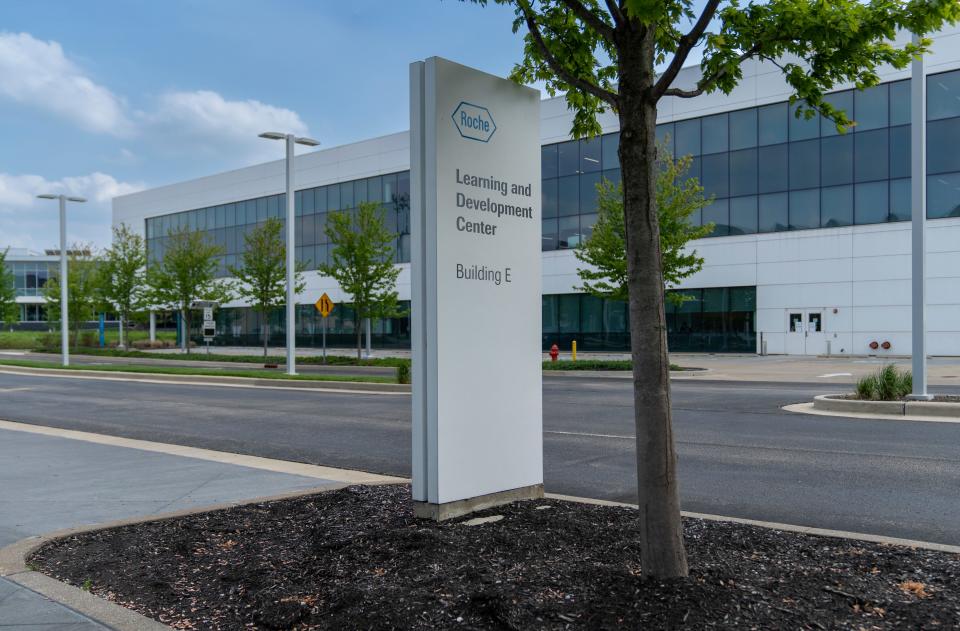New blood test under development by Lilly and Roche could make diagnosing Alzheimer's easier
A blood test to provide an early diagnosis of Alzheimer's disease may be available soon from two Indianapolis biomedical companies, as the cases of the progressive neurological illness are on the rise.
Indianapolis companies Roche Diagnostics and Eli Lilly and Co., are collaborating to develop a more accessible and affordable option to supplement the spinal tap fluid sample test and PET scan tests that are available today.
Spinal taps can be difficult to schedule because they must be done by specialists, whose schedules fill months in advance due to high-demand. A PET scan, which looks for diseases in the body, may not be available outside of densely-populated areas.
More: State to restrict access to abortion reports. Rokita said that will obstruct enforcement.
As a result, Alzheimer's can take years to diagnose, said Laura Parnas, a scientist at Roche Diagnostics. Last week, Roche announced that the test would be fast-tracked after federal regulators concluded that it could be a breakthrough device that could make a significant difference in diagnosing the neurological disease.
If approved, the blood test may act as a preliminary test to rule out cases and identify which patients should undergo more advanced testing, Parnas said.
"Anybody can obtain a blood sample anywhere," she said.

At this point it is not clear how long it will be before the test is widely available in doctors' offices.
Alzheimer's, a progressive loss of memory and other mental functions, accounts for some 60-80% of dementia cases, according to the Alzheimer's Association. Dementia describes a number of diseases associated with decline in memory and other thinking skills.
Nearly 7 million Americans are living with Alzheimer's, according to the Alzheimer's Association. That number is expected to increase to 13 million by 2050, as people live longer.
The blood test is still being developed so it's unclear if it will be used as a diagnostic or screening tool or both. Nor has the accuracy of the blood test been determined.
The key in the development of the test, Parnas said, is to identify disease markers in the blood and develop technology that can hone in on a very small sample that may be present in blood signaling the patient may have Alzheimer's.
Binghui Huang can be reached at 317-385-1595 and Bhuang@gannett.com
This article originally appeared on Indianapolis Star: Alzheimer's blood test in development by Lilly and Roche

